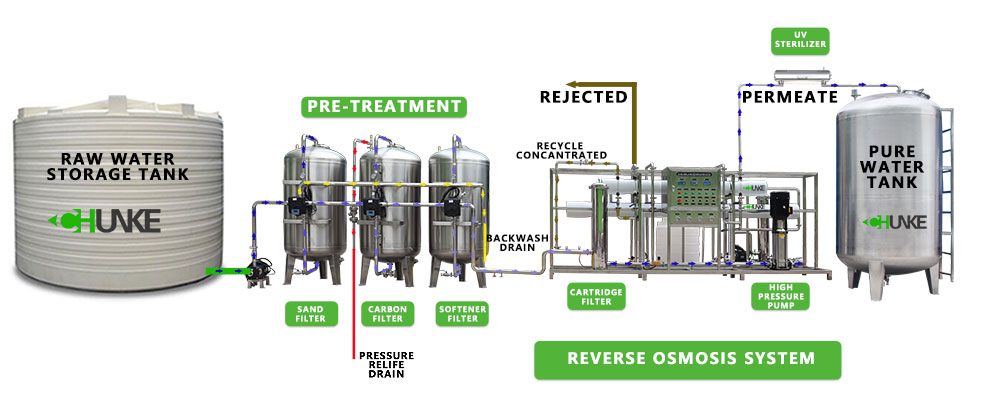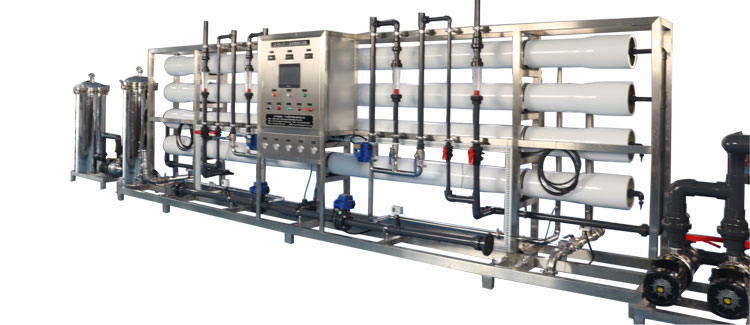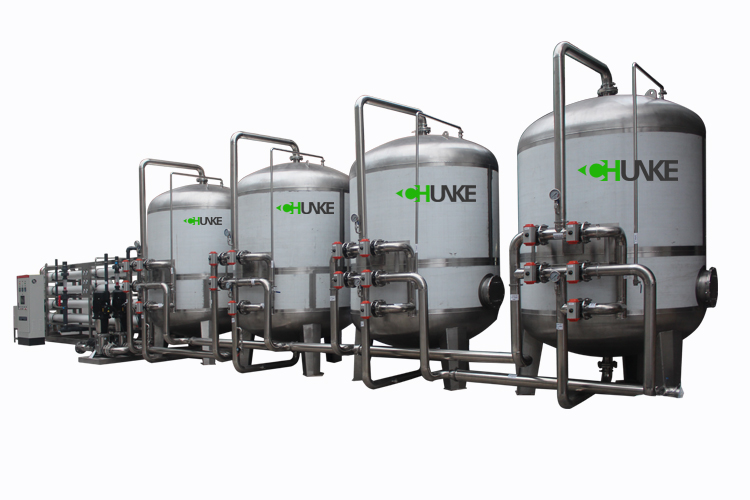Should I install a water softener? What are its advantages and disadvantages?
As a household water treatment device, water softeners are increasingly entering the public's field of vision. Water softeners can effectively remove calcium and magnesium ions in water, making water "soft" and improving the water experience.
However, many families still have doubts about whether they should install a water softener. This article will discuss in detail the working principle, advantages and disadvantages of water softeners and their applicable scenarios to help readers make wise decisions.

How does a water softener work?
The main function of a water softener is to convert hard water into soft water. Hard water contains high concentrations of calcium and magnesium ions, which are easy to form scale in pipes, boilers and household appliances, affecting the efficiency and life of the equipment. Water softeners use ion exchange technology to remove these calcium and magnesium ions.
● Ion exchange resin: The water softener is equipped with ion exchange resin, which has sodium ions on its surface. When hard water passes through the resin, the calcium and magnesium ions in the water are adsorbed on the surface of the resin, and the resin releases sodium ions into the water, thereby completing the ion exchange process.
●Regeneration process: When the resin is saturated with calcium and magnesium ions, it needs to be regenerated with salt water containing high concentrations of sodium ions to restore the ion exchange capacity of the resin. This process is usually completed automatically by a water softener.
What are the advantages of a water softener?
Advantages of water softeners:
● Prevent scale accumulation
● Improve cleaning results
● Improve skin and hair health
● Improve home comfort
Installing a water softener brings many significant benefits, especially in hard water areas.
1. Prevent scale accumulation: The water softener effectively removes calcium and magnesium ions from the water, preventing scale from accumulating in pipes, water heaters and other household appliances, thereby extending the life of the equipment and reducing maintenance and replacement costs.
2. Improve cleaning results: Soft water helps to improve the effectiveness of detergents, soaps and detergents, reduce usage and save money. There is no precipitation formed by calcium and magnesium ions and soap in soft water, making clothing, dishes and skin washing more thorough.
3. Improve skin and hair health: The calcium and magnesium ions in hard water may have adverse effects on skin and hair during bathing, causing dry skin and frizzy hair. Soft water can reduce this effect, making the skin softer and the hair smoother.
4. Improve home comfort: Clothes washed with soft water are softer, and scale spots are less likely to form on the surface of bathtubs, sinks and tiles, keeping them clean and beautiful.

What are the disadvantages of water softeners?
Disadvantages of water softeners:
● Increased sodium content
● Increased cost
● Environmental impact of the regeneration process
● Mineral loss
Although water softeners have many advantages, there are also some disadvantages and potential problems that need to be considered when making decisions.
1. Increased sodium content: Water softeners replace calcium and magnesium ions with sodium ions through ion exchange, resulting in increased sodium content in soft water. This can be a health risk for people with high blood pressure or strict sodium intake restrictions. In addition, soft water is not suitable for drinking water for babies or irrigating plants.
2. Increased cost: Water softeners are expensive to purchase, install and maintain, including regular purchases of regeneration salt and replacement parts. Water softeners require professional installation and regular maintenance, which can be a burden for families with limited budgets.
3. Environmental impact of the regeneration process: The regeneration process of the water softener produces salty wastewater, which may pollute the soil and water bodies after being discharged into the environment. With the increasing environmental awareness today, this issue needs special attention.
4. Mineral deficiency: The water softener removes minerals such as calcium and magnesium from the water, which are beneficial to human health. Although drinking water is not the main source of mineral intake, complete removal of minerals may have an impact on some people.

What are the applicable scenarios for water softeners?
When deciding whether to install a water softener, it is important to consider the specific situation and needs of the family. Here are some typical scenarios for water softeners:
1. Hard water areas: If you live in a hard water area with high calcium and magnesium ion content in the water, installing a water softener can significantly improve the water quality, protect pipes and home appliances, and improve the quality of life.
2. Home appliance protection: If there are multiple water-using appliances in the home, such as washing machines, dishwashers, and water heaters, water softeners can effectively extend the service life of these devices and reduce the cost of repair and replacement.
3. People with sensitive skin: For family members with sensitive skin or skin problems, soft water can reduce the irritation of hard water on the skin and improve skin health.
4. Commercial use: In commercial places such as hotels, restaurants and laundries, water softeners can improve service quality, reduce equipment maintenance costs and increase customer satisfaction.
Conclusion
As a device to improve water quality, water softeners have significant advantages, especially in hard water areas, which can prevent scale accumulation, improve cleaning effects, and improve skin and hair health.
However, water softeners also have some disadvantages, such as increased sodium content, higher costs and environmental impact. When deciding whether to install a water softener, users should consider their own needs, family situation and economic ability and choose the most suitable solution.




